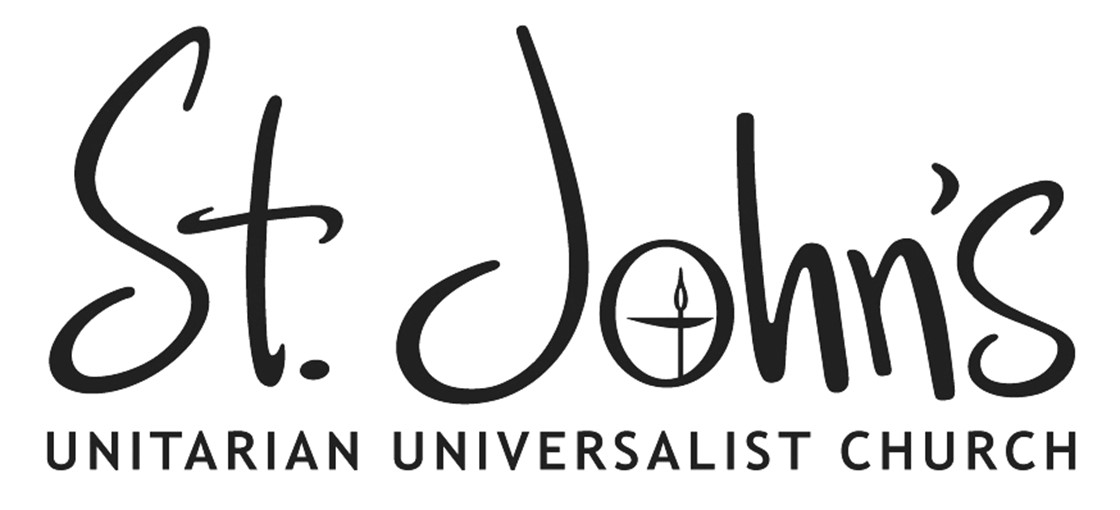In the early 1970s, the Unitarian Universalist at General Assembly made a public statement against the death penalty. At St. John’s, the effort to end the death penalty found an echo in a congregation-wide resolution on peace and a more recent resolution against racism. For, in truth, so long as the justice system exists in a racists society, there is no way to apply the death penalty equally under the law.
Recently, the Supreme Court cleared the way for executions to resume in the federal system.
This is a good time for us to reconsider why we oppose the death penalty. If in this consideration, you are inspired to pick up or continue work against capital punishment, I invite you to do so.
I remember hearing Sister Helen Prejean say that we are more than the worst thing we have ever done. It is a truth worth remembering for all of us. Her book and movie, Dead Man Walking, and deep advocacy center around the humanity of the condemned. Names of death row inmates are often circulated on prayer lists. Some justice organizations encourage direct communications with death row inmates in an effort to humanize them.
Every person has worth.
If every person has inherent human worth, whatever they have or have not done, no matter the conversation or hot topic of the day. Let us assume that this worth cannot be eclipsed by prison bars and is not dependent on any of us deciding to recognize that worth on any given day. Then the murderer and the victim, the abuser and the abused are equal in the eyes of the Eternal.
For the likes of you and me, we who are always more limited than any eternal, the question comes, where will we cast our gaze? Whose name will we call?
Some of us will cast our gaze upon the justice system and demand that racism be exorcized from a system founded on the same. We might be moved to work for police reform or support The Innocence Project (https://www.innocenceproject.org/) or we might be actively concerned with what judges are elected and appointed to the bench.
Some of us will cast our gaze on the social structures. When these structures are broken, they can damage the human spirit and psyche so much that it becomes possible for us to hurt each other. I think of the saying, “hurt people hurt people.” Better programs for crime prevention, programs for fuller human education and development, and equal access to the fruits of a rich society come into our vision and become our pursuit.
Some of us will cast our gaze, with some horror, at our for-profit privatized prison system and advocate for better ways. We might choose to be in relationship with incarcerated people through programs like the Church of the Larger Fellowship’s “Worthy Now” program. https://worthynow.org/
Though most who have died at the hands of the state have been guilty, our system has condemned and killed innocent people. And still, I trust that most who have died have been guilty. Nothing about the condemned, other than their inalienable humanity, has anything to do with why we should oppose the death penalty.
Let us cast our gaze to ourselves, to our own fantasies of power and our own flawed humanity. In doing so, we might better understand why alternatives to the death penalty are essential for the soul of our nation.
Are we wise enough, free from prejudice enough, far seeing enough, or just plain “good” enough to know who should live and who should die?
Our fantasies might say that we are, but any honest look at our own lives and our history would say otherwise.
We are flawed people, inheriting, supporting, and recreating a flawed and racist system we call justice. Sometimes it works. Sometimes it doesn’t. Because we are not infallible, it can never be perfect. No imperfect system should have power to inflict ultimate punishment of death.
Our fantasies might lead us to believe that if only we had been there to intervene in the lives of the murderous, they would have chosen better. This manifests when we spend more time waxing poetic about the victimhood of the violent than recalling the brutality of the crime. If we indulge these fantasies too long, we risk forgetting the humanity of the victims. First among names needing to be remembered are the victims and their beloveds.
Grounded in the confidence that each life has worth, we no longer need to spend time or energy proving the condemned worthy. Our energy could be redirected to understand how dysfunctional our system is and how we carry the same seeds of dysfunction in us. Clarity in understanding might lead to work for structural change as well as personal and interpersonal change.
Our opposition to the death penalty is not because “they” don’t deserve to die. It is because we have never been holy enough to make that call; and what we know of the holy never would. It is a question, an action beyond our limited capacity and to claim otherwise is the height of arrogant inhumanity.
